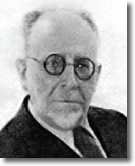Warning! The template for this page [TurismoCultura.html] doesn't exists.
Mayors of Naples since 1944
Names and pictures of the Mayors of Naples in office from 1944
On 5 August 1943 Giuseppe Solimena became Mayor of Naples and he was in charge when, in October of the same year, a popular riot liberated the city from the German occupation. Later, on 4 April 1944, a royal decree law marked a turning point in Italian history. In fact, up until that moment and for eighteen years, the Fascist Regime had been appointing a Podestà to carry out the duties of mayor and town councillor. But, thanks to the Article 1 of the new law, it was established that each Municipality and Province should have a mayor and a Committee, both appointed by the Prefect. This way the power was not accrued into the Podesta's hands anymore.
The first Mayor of Naples after liberation
The first Mayor elected
In January 1946 another decree law, signed by Umberto od Savoia, Liutenant of the Reign, introduced the election system. Giuseppe Bonocore became mayor on 10 December 1946, winning with 33 votes in favour. The 25 against him were in favour of Gennaro Fermariello, already appointed by the Prefect.
The 2 and 3 January's elections of the same year were the first by universal suffrage. On that occasion, Italians chose to live in a Republican country.
The first Mayor elected by Neapolitans
Act 81 of 1993 established the direct election of the mayor. He was not elected anymore by town councillors, but by citizens. More duties were given to him: he had to appoint councillors, executives, and others. The first election that respected this system happened on 21 November 1993. Candidates were 9; on 5 Decembre, after a second ballot,
Antonio Bassolino won with 55,6% of votes in his favour, becoming the first mayor chosen
by citizens.
Accetto la cookie policyContinuando ad utilizzare questo sito l'utente acconsente all'utilizzo dei cookie sul browser come descritto nella nostra cookie policy, a meno che non siano stati disattivati. È possibile modificare le impostazioni dei cookie nelle impostazioni del browser, ma parti del sito potrebbero non funzionare correttamente. visualizza la cookie policy
Accept

 visualizza le foto dei sindaci di Napoli dal 1944
visualizza le foto dei sindaci di Napoli dal 1944